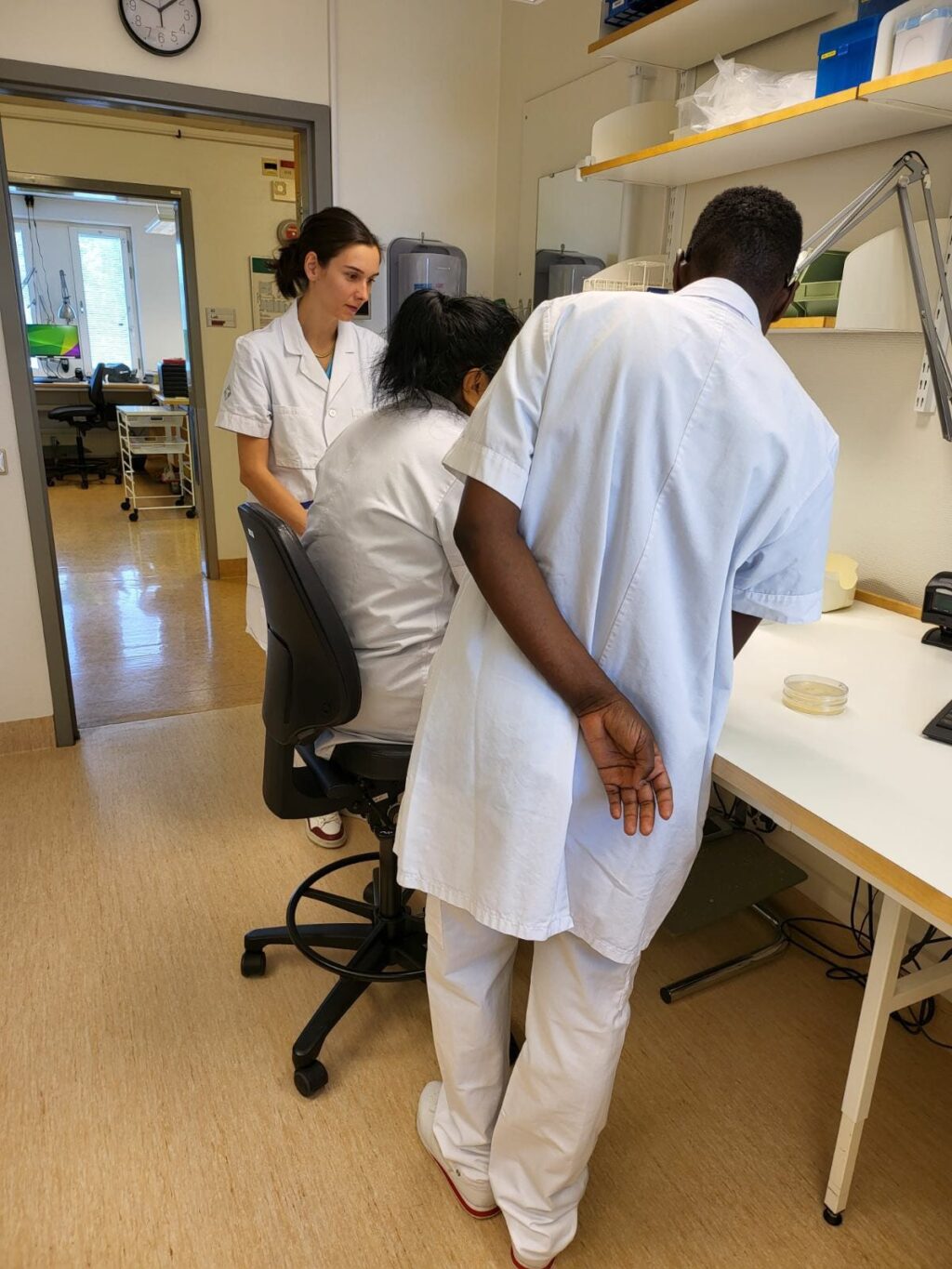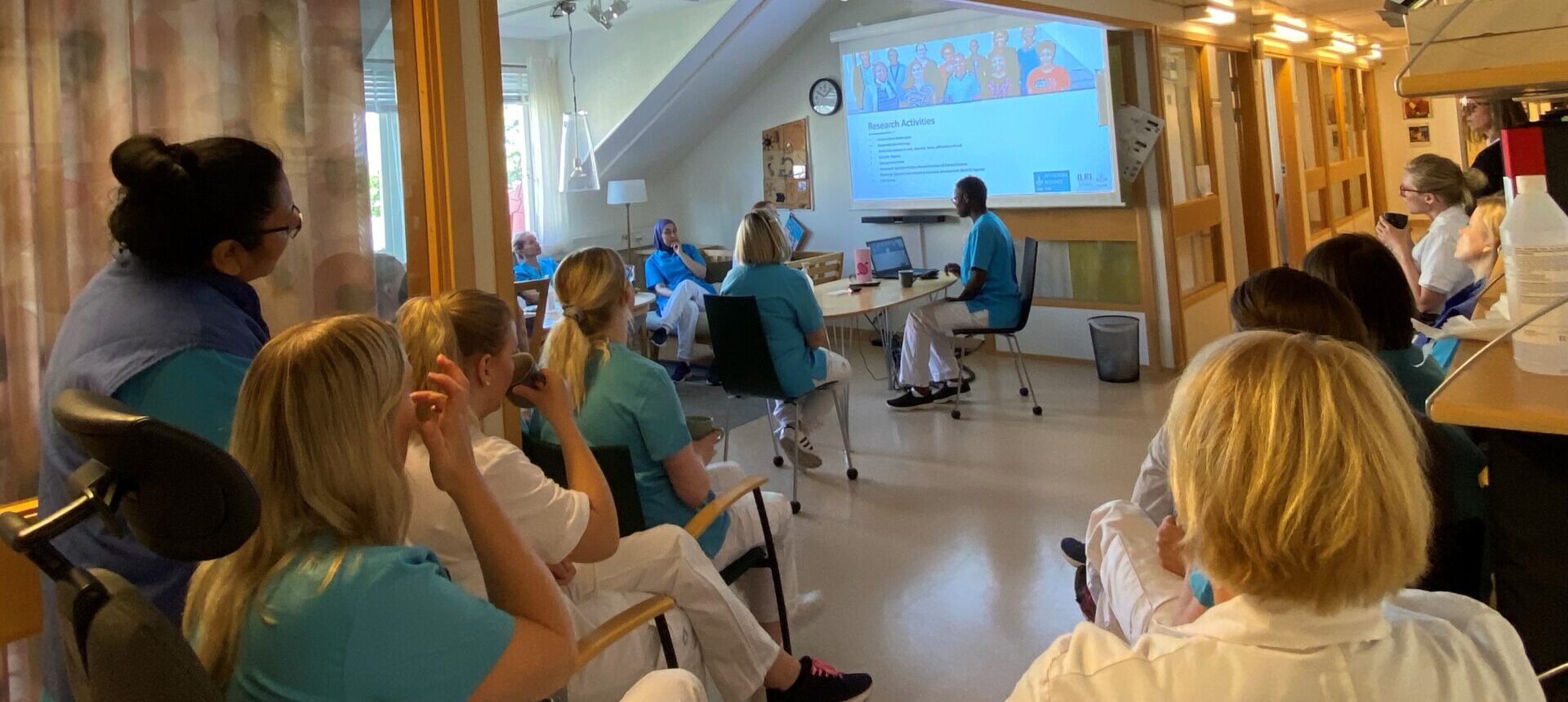Between 13-17 June, individuals from the International Livestock Research Institute in Kenya, and the National Centre for Disease Control in Georgia, were funded via ICARS projects to attend training at the European Committee on Antimicrobial Susceptibility Testing (EUCAST) Laboratory in Växjö, Sweden.
The course, co-funded by ICARS, provides a valuable opportunity to bring people together to exchange knowledge and skills, and to build the capacity of attendees to later deliver the training within their own country settings.
Antimicrobial Susceptibility Testing (AST) is the laboratory procedure performed to determine which antimicrobials would effectively tackle a specific bacteria, fungus, parasite or virus. Reliable AST capacities are necessary to understand the circulating resistance levels and patterns, and is critical for good antimicrobial stewardship.
This practical EUCAST training course covers methodologies for phenotypic AST, techniques to evaluate and interpret test results, and importantly how to perform routine quality control. The focus on quality control, not only supports compliance with the EUCAST recommendations, but also establishes routines that improve the responsiveness of staff to recognize and act to improve AST results.
This first round of training is part of a larger capacity building scheme to facilitate the Training of Trainers (ToT). Later this year EUCAST personnel will travel to Kenya and Georgia for site visits and to deliver training which will be observed, and later delivered, by the participants of the course in Sweden. The ToT model allows participants of the course to train other lab members and expand the experience and knowledge of the broader team, while also building the capacity of teams to deliver follow-up training.
Linnet Ochieng, Research Associate, ILRI attended the training and reflected on the value of the course saying:
“the training was timely as we are getting into an intensive phase of antimicrobial susceptibility testing in our lab at ILRI. We also acquired a sensititre AIMS and VIZION and the training covered the operation of the two. This kind of trainings should be held regular to enhance better understanding of the EUCAST methodologies and how to use breakpoint tables.”
Capacity and capability building is one of ICARS’ four strategic pillars. We see it as essential to the process of creating a critical mass of government (central agencies) and research personnel equipped with the knowledge, skills and competencies to implement AMR solutions that advance National Action Plan implementation.
We are excited that this important knowledge exchange is underway and look forward to sharing more information about the ongoing training for these critical and life-saving skills.


